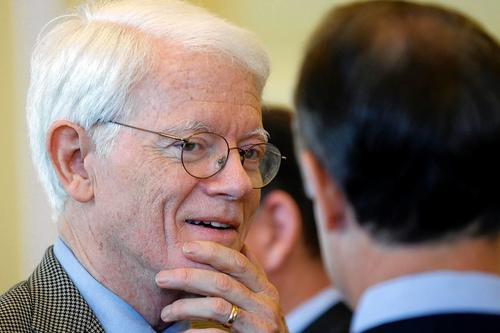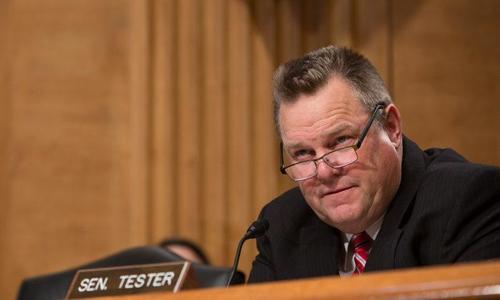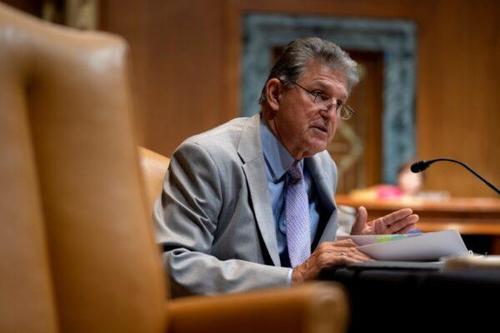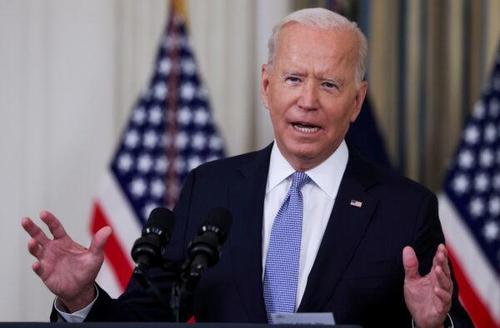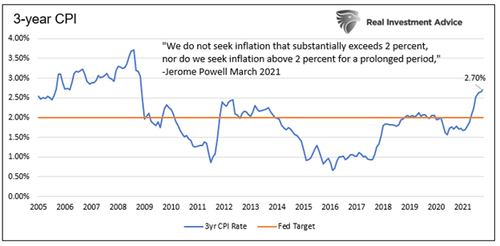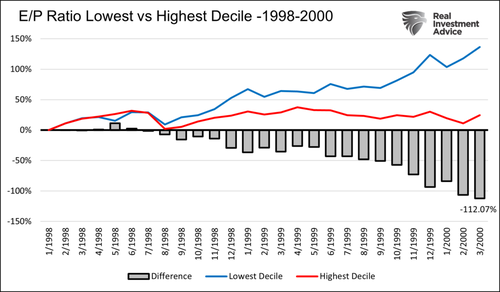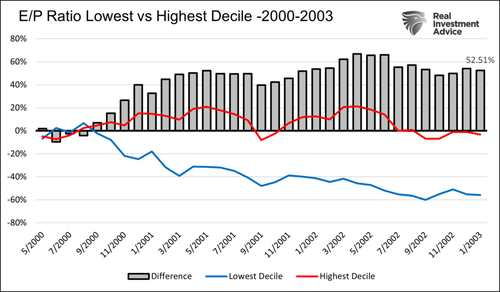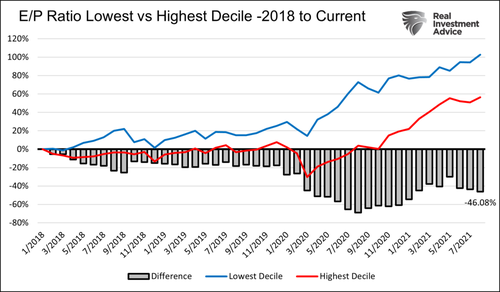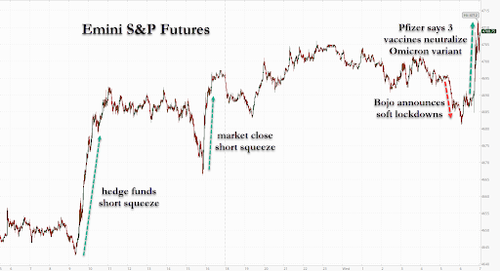Much of the overnight session was a snooze fest with stocks drifting first higher then lower after surging on Tuesday, as the narrative meandered from “omicron fears ease” optimism to “vaccines won’t work” pessimism, before futures took a sudden leg lower, dropping into the red just after 530am ET, following news that UK’s Boris Johnson would introduce new restrictions in England to curb Omicron spread, sparking fears that Omicron is more dangerous that expected (and than futures reflected). However, this episode of pessimism proved short-lived because just an hour later, the WSJ confirmed that Omicron is really just a pitch for covid booster shots when it reported that even though the covid vaccine loses significant effectiveness against Omicron in an early study, this is miraculously reversed with a booster shot as three doses of the vaccine were able to neutralize the variant in an initial laboratory study, and the companies said two doses may still protect against severe disease.
Futures quickly shot up on the news, spiking above the gamma “all clear” level of 4,700 in a move best summarized with the following chart.

And so, after going nowhere, S&P futures climbed for a third day, last seen 12 points, or 0.3% higher, just around 4,700 after rising the most since March on Tuesday. Europe’s Stoxx 600 Index rose following the biggest jump in more than a year. In addition to the omicron soap opera, which as we noted yesterday turns out was just one staged covid booster shot advertisement (because Pfizer and Moderna can always do with a bigger yacth), sentiment was also lifted by Chinese authorities’ reversal to “easing mode” and aggressive efforts to limit the fallout from property market woes which lifted risk assets in Asia even as key debt deadlines at China Evergrande Group and Kaisa Group Holdings Ltd. passed without any sign of payment.
“Clearly in the very short term uncertainty has risen over the Omicron virus… but overall at this stage we do not believe it will derail the macro picture in the medium-term,” said Jeremy Gatto, multi-asset portfolio manager at Unigestion.
Treasury yields were little changed after rising across the curve Tuesday. The VIX spiked first on the FT news, then dropped back into the red, while the dollar was flat and crude rose after turning red.
Besides macro, micro was also in play and here are some other notable premarket movers
- Apple (AAPL US) ticks 1% higher in premarket trading following a Nikkei report that the tech giant told suppliers to speed up iPhone output for Nov.-Jan, citing people it didn’t identify.
- Amazon.com (AMZN US) shares in focus after an Amazon Web Services outage is wreaking havoc on the e-commerce giant’s delivery operation
- Stitch Fix (SFIX US) tumbles 25% in U.S. premarket trading after a 2Q forecast miss that analysts called “surprising,” while customer additions also disappointed
- Pfizer (PFE US) shares drop 2% in U.S. premarket trading after an early study showed that the company’s vaccine provides less immunity to the omicron variant
- Dare Bioscience (DARE US) soars 41% in premarket trading after Xaciato gets FDA approval for treating bacterial vaginosis
- EPAM Systems (EPAM US) soars 8% in premarket after S&P Dow Jones Indices said co. will replace Kansas City Southern in the S&P 500 effective prior to the opening of trading on Dec. 14
- Goodyear Tire & Rubber (GT US) upgraded to buy from hold and target boosted to Street-high $32 from $29 at Deutsche Bank with the company seen as a major beneficiary from the shift to electric vehicles. Shares up 4.3% in premarket trading
- NXP Semiconductor (NXPI US) shares slide 2.2% in U.S. premarket trading after the chipmaker got a new sell rating at UBS
- Dave & Buster’s (PLAY US) gained 3.5% postmarket after the dining and entertainment company reported EPS that beat the average analyst estimate and authorized a $100 million share buyback program
“Every day that passes without a wave of severe cases driven by Omicron is offering more hope that this won’t be the curveball to throw the recovery off course,” wrote Deutsche Bank strategist Jim Reid in a note to clients.
In Europe, the Stoxx Europe 600 Index initially drifted both higher and lower then bounced 0.3% on the favorable Pfizer and BioNTech news one day after posting its bigger surge in a year. European benchmark index earlier rose as much as 2%, dropped 2.1%. Health care sub-index leads gains, rising 1.2%, followed by travel stocks. The Stoxx 600 closed 2.5% higher on Tuesday, biggest gain since November 2020
Earlier in the session, Asia stocks also rose for a second day as concerns about the omicron variant and China’s economic slowdown eased. The MSCI AsiaPacific Index climbed as much as 0.9% after capping its biggest one-day gain in more than three months on Tuesday. Technology and health-care shares provided the biggest boosts. Benchmarks in New Zealand and India — where the central bank held rates at a record low — were among the day’s best performers.
“The biggest point appealing to investors is that the Omicron variant doesn’t seem to be too fatal,” which is encouraging to those who had been going short to close out their positions, said Tomoichiro Kubota, a senior market analyst at Matsui Securities in Tokyo. “Worry that the Chinese economy will lose its growth momentum has subsided quite a bit.” Thus far, Omicron cases haven’t overwhelmed hospitals while vaccine developments indicate some promise in dealing with the variant. While vaccines like the one made by Pfizer and BioNTech SE may be less powerful against the new strain, protection can be fortified with boosters. The two-day rally in the Asian stock benchmark marks a sharp turnaround following weeks of declines since mid-November. Stocks in China also climbed for a second day. The nation’s central bank said Monday it will cut the amount of cash most banks must keep in reserve from Dec. 15, providing a liquidity boost and helping restore investor confidence
In FX, news on the Omicron variant rippled through G-10 currencies after a report the Pfizer vaccine could neutralize the Omicron variant boosted risk appetite. The pound underperformed other Group-of-10 peers, extending declines after reports that the U.K. government is poised to introduce new Covid-19 restrictions. A gauge of the dollar’s strength fluctuated as Treasuries pare gains and stocks rally after a report that said Pfizer and BioNTech claim three vaccine doses neutralize the omicron variant. EUR/USD rose 0.1% to 1.1277; USD/NOK falls as much as 0.8% to 8.9459, lowest since Nov. 25
Sterling fell against the euro and the dollar, as traders pare bets on the path of Bank of England rate hikes following reports that the U.K. could introduce fresh Covid-19 restrictions such as working from home and vaccine passports for large venues. Money markets pare rate hike bets, with just six basis points of interest rate hikes priced in for the BOE meeting next week. GBP/USD falls as much as 0.6% to 1.3163, testing the key level of 1.3165, the 38.2% Fibonacci retracement of gains since March 2020. EUR/GBP gains as much as 0.7% to 0.85695, the highest since Nov. 11.
“The market will probably see this as more U.K. specific and therefore an issue for the pound at least in the short term,” said Stuart Bennett, FX strategist at Santander.
In rates, Treasuries were mixed with markets reacting in a risk-on manner to the Dow Jones report that Pfizer and BioNTech claim three vaccine doses neutralize the omicron variant. Yields remain richer by less than 1bp across long-end of the curve while front-end trades cheaper on the day, flattening curve spreads. Session’s focal points include $36b 10-year note reopening at 1pm ET, following Tuesday’s strong 3-year note auction. Treasury 10-year yields around 1.475%, near flat on the day; gilts outperform slightly after Financial Times report that further Covid restrictions will be announced imminently to curb the variant’s spread. U.S. 2-year yields were cheaper by 1bp on the day, rose to new 2021 high following Pfizer vaccine report; 2s10s spread erased a flattening move
In commodities, crude futures turned red, WTI falling 0.8%, popping back below $72. Spot gold holds Asia’s modest gains, adding $8 to trade near $1,792/oz.
Looking at the day ahead, and Olaf Scholz is expected to become German Chancellor in a Bundestag vote today. From central banks, the Bank of Canada will be deciding on rates, and we’ll also hear from ECB President Lagarde, Vice President de Guindos and the ECB’s Schnabel. Finally, data releases include the JOLTS job openings from the US for October.
Market Snapshot
- S&P 500 futures up 0.2% to 4,693.75
- STOXX Europe 600 little changed at 480.55
- MXAP up 0.7% to 194.84
- MXAPJ up 0.6% to 632.78
- Nikkei up 1.4% to 28,860.62
- Topix up 0.6% to 2,002.24
- Hang Seng Index little changed at 23,996.87
- Shanghai Composite up 1.2% to 3,637.57
- Sensex up 1.8% to 58,654.25
- Australia S&P/ASX 200 up 1.3% to 7,405.45
- Kospi up 0.3% to 3,001.80
- Brent Futures down 0.5% to $75.04/bbl
- Gold spot up 0.3% to $1,790.33
- U.S. Dollar Index down 0.17% to 96.20
- German 10Y yield little changed at -0.38%
- Euro up 0.2% to $1.1286
- Brent Futures down 0.5% to $75.04/bbl
Top Overnight News from Bloomberg
- The omicron variant of Covid-19 must inflict significant damage on the euro-area economy for European Central Bank Governing Council member Martins Kazaks to back additional stimulus
- “The current phase of higher inflation could last longer than expected only some months ago,” ECB vice president Luis de Guindos says at event
- The earliest studies on omicron are in and the glimpse they’re providing is cautiously optimistic: while vaccines like the one made by Pfizer Inc. and BioNTech SE may be less powerful against the new variant, protection can be fortified with boosters
- U.K. Prime Minister Boris Johnson is set to announce new Covid-19 restrictions in England, known as “Plan B,” to stop the spread of the Omicron variant, the Financial Times reported, citing three senior Whitehall officials familiar with the matter.
- French economic activity will continue to rise in December, despite another wave of the Covid-19 pandemic and fresh uncertainty over the omicron variant, according the Bank of France
- The Kingdom of Denmark will sell a sovereign green bond for the first time next month to help the Nordic nation meet one of the world’s most ambitious climate targets
- Tom Hayes, the former UBS Group AG and Citigroup Inc. trader who became the face of the sprawling Libor scandal, has lost his bid to appeal his U.K. criminal conviction
- Poland is poised for a hefty increase in interest rates after a spike in inflation to a two- decade high convinced central bankers that spiraling price growth isn’t transitory. Of 32 economists surveyed by Bloomberg, 20 expect a 50 basis-point hike to 1.75% today and 10 see the rate rising to 2%. The other two expect a 25 basis-point increase
- Australia is weighing plans for a central bank-issued digital currency alongside the regulation of the crypto market as it seeks to overhaul how the nation’s consumers and businesses pay for goods and services
- Bank of Japan Deputy Governor Masayoshi Amamiya dropped a strong hint that big firms are in less need of funding support, a comment that will likely fuel speculation the BOJ will scale back its pandemic buying of corporate bonds and commercial paper
A detailed summary of global markets courtesy of Newsquawk
Asian equity markets traded positively as the region took impetus from the global risk momentum following the tech-led rally in the US, where Apple shares rose to a record high and amid increased optimism that Omicron could be less dangerous than prior variants. This was after early hospitalisation data from South Africa showed the new variant could result in less severe COVID and NIH’s Fauci also suggested that Omicron was ‘almost certainly’ not more severe than Delta, although there were some slight headwinds in late Wall Street trade after a small study pointed to reduced vaccine efficacy against the new variant. The ASX 200 (+1.3%) was underpinned in which tech led the broad gains across sectors as it found inspiration from the outperformance of big tech stateside, and with energy bolstered by the recent rebound in underlying oil prices. The Nikkei 225 (+1.4%) conformed to the upbeat mood although further advances were capped after USD/JPY eased off the prior day’s highs and following a wider-than-expected contraction to the economy with the final annualised Q3 GDP at -3.6% vs exp. -3.1%. The Hang Seng (+0.1%) and Shanghai Comp. (+1.2%) were less decisive and initially lagged behind their peers as sentiment was mired by default concerns due to the failure by Evergrande to pay bondholders in the lapsed 30-day grace period on two USD-denominated bond payments and with Kaisa Group in a trading halt after missing the deadline for USD 400mln in offshore debt which didn’t bode well for its affiliates. Furthermore, China Aoyuan Property Group received over USD 650mln in repayment demands and warned it may not be able to meet debt obligations, while a subdued Hong Kong debut for Weibo shares which declined around 6% from the offer price added to the glum mood for Hong Kong’s blue-chip tech stocks, as did reports that China is to tighten rules for tech companies seeking foreign funding. Finally, 10yr JGBs languished after spillover selling from T-notes and due to the heightened global risk appetite, but with downside stemmed by support at the key psychological 152.00 level and amid the presence of the BoJ in the market today for over JPY 1.0tln of JGBs.
Top Asian News
- China Clean Car Sales Spike as Consumers Embrace Electric
- Gold Edges Higher as Traders Weigh Vaccine Efficacy, Geopolitics
- Paint Maker Avia Avian Falls in Debut After $763 Million IPO
- Tokyo Prepares to Introduce Same-Sex Partnerships Next Year
Equities in Europe shifted to a lower configuration after a mixed open (Euro Stoxx 50 -0.7%; Stoxx 600 -0.1%) as sentiment was dented by rumours of tightening COVID measures in the UK. Markets have been awaiting the next catalyst to latch onto for direction amidst a lack of fresh fundamentals. US equity futures have also been dented but to a lesser extent, with the YM (-0.1%) and ES (Unch) straddling behind the NQ (+0.2%) and RTY (+0.2%). Sources in recent trade suggested an 85% chance of the UK implementing COVID Plan B, according to Times’ Dunn; reports indicate such restrictions could be implemented on Thursday, with the potential for an announcement today. In terms of the timings, the UK cabinet is penciled in for 15:45GMT and presser for 17:30GMT on Plan B, according to BBC’s Goodall. Note, this will not be a formal lockdown but more so work-from-home guidance, vaccine passports for nightlife and numerical restrictions on indoor/outdoor gatherings. APAC closed in the green across the board following the tech-led rally in the US. The upside overnight was attributed to a continuation of market optimism after early hospitalisation data from South Africa showed the new variant could result in less severe COVID, albeit after a small study pointed to reduced vaccine efficacy against the new variant. Participants will be closely watching any updates from the vaccine-makers, with the BioNTech CEO stating the drugmaker has data coming Wednesday or Thursday related to the new COVID-19 variant, thus markets will be eyeing a potential update this week ahead of the Pfizer investor call next Friday. Back to European, the UK’s FTSE 100 (Unch) and the Swiss SMI (+0.8%) are largely buoyed by their defensive stocks, with sectors seeing a defensive formation, albeit to a slightly lesser extent vs the open. Healthcare retains its top spot closely followed by Food & Beverages, although Personal & Household Goods and Telecoms have moved down the ranks. On the flip side, Retail, Banks and Travel & Leisure trade at the bottom of the bunch, whilst Tech nursed some earlier losses after opening as the lagging sector. In terms of individual movers, Nestle (+1.8%) is bolstered after announcing a CHF 20bln share repurchase programme alongside a stake reduction in L’Oreal (+1.0%) to 20.1% from 23.3% – worth some EUR 9bln. L’Oreal has shrugged off the stake sale and conforms to the firm sectoral performance across the Personal & Household Goods. Meanwhile, chip names are under pressure after Nikkei sources reported that Apple (+0.8% pre-market) was forced to scale back the total output target for 2021, with iPhone and iPad assembly halted for several days due to supply chain constraints and restrictions on the use of power in China, multiple sources told Nikkei. STMicroelectronics (-1.7%) and Infineon (-5.0%) are among the losers, with the latter also weighed on by a broker downgrade at JPM.
Top European News
- ECB’s Kazaks Sets High Bar for Omicron-Driven Extra Stimulus
- Biden Is Left Guessing Over Putin’s Ultimate Aim in Ukraine
- Byju’s Buys Austria’s GeoGebra to Bolster Online Math Courses
- Scholz Elected by Parliament to Take Charge as German Chancellor
In FX, the Dollar index continues to hold above 96.000, but bounces have become less pronounced and the range so far today is distinctly narrower (96.285-130) in fitting with the generally restrained trade in pairings within the basket and beyond, bar a few exceptions. Price action suggests a relatively muted midweek session unless a major game-changer arrives and Wednesday’s agenda does not bode that well in terms of catalysts aside from JOLTS and the BoC policy meeting before the second leg of this week’s refunding in the form of Usd 36 bn 10 year notes.
- AUD/EUR – Notwithstanding the largely contained currency moves noted above, the Aussie is maintaining bullish momentum on specific factors including strength in iron ore prices and encouraging Chinese data plus PBoC easing that should have a positive knock-on effect for one of its main trading partners even though diplomatic relations between the two nations are increasingly strained. Aud/Usd has also cleared a couple of technical hurdles on the way up to circa 0.7143 and Aud/Nzd is firmer on the 1.0500 handle ahead of the RBA’s latest chart pack release and a speech by Governor Lowe. Elsewhere, the Euro has regained composure after its sub-1.1250 tumble on Tuesday vs the Buck and dip through 0.8500 against the Pound, but still faces psychological resistance at 1.1300 and the 21 DMA that comes in at 1.1317 today, while Eur/Gbp needs to breach the 100 DMA (0.8513) convincingly or close above to confirm a change in direction for the cross from a chart perspective.
- CHF/CAD/JPY/GBP/NZD – All sitting tight in relation to their US counterpart, with the Franc paring some declines between 0.9255-30 parameters and the Loonie straddling 1.2650 in the run up to the aforementioned BoC that is widely seen as a non-event given no new MPR or press conference, not to mention the actual changes in QE and rate guidance last time. Nevertheless, implied volatility is quite high via a 63 pip breakeven for Usd/Cad. Meanwhile, Sterling lost grip of the 1.3200 handle amidst swirling speculation about the UK reverting to plan B and more Tory MPs calling for PM Johnson to resign, the Yen is rotating around 113.50 eyeing broad risk sentiment and US Treasury yields in context of spreads to JGBs, and the Kiwi is lagging after touching 0.6800 awaiting independent impetus from NZ manufacturing sales for Q3.
- SCANDI/EM – The Nok extended its advantage/outperformance against the Sek as Brent rebounded towards Usd 76/brl in early trade and Riksbank’s Jansson retained reservations about flagging a repo rate hike at the end of the forecast horizon, while the Mxn and Rub also initially derived some support from oil with the latter also taking on board latest hawkish talk from the CBR. However, the Cny and Cnh are outpacing their rivals again with some assistance from a firmer PBoC midpoint fix to hit multi-year peaks vs the Usd and probe 6.3500 ahead of option expiry interest at 6.3000 and a Fib retracement at 6.2946, in stark contrast to the Try that is unwinding recent recovery gains with no help from the latest blast from Turkish President Erdogan – see 10.00GMT post in the Headline Feed for more. Conversely, the Czk has taken heed of CNB’s Holub underscoring tightening signals and expectations for the next rate convene and the Pln and Brl are anticipating hikes from the NBP and BCB.
In commodities, crude futures have been hit on the prospect of imminent COVID-related measures in the UK, albeit the measures do not involve lockdowns. Brent and WTI front month futures slipped from European highs to breach APAC lows. The former dipped below USD 74.50/bbl from a USD 76.00/bbl European peak while its WTI counterpart tested USD 71.00/bbl from USD 72.50/bbl at best. Overnight the benchmarks traded on either side the USD 75/bbl mark and just under USD 72/bbl after the weekly Private Inventories printed a larger-than-expected draw (-3.6mln vs exp. -3.1mln), albeit the internals were less bullish. Yesterday also saw the release of the EIA STEO, cut its 2021 world oil demand growth forecast by an insignificant 10k BPD but raised the 2022 metric by 200k BPD – with the IEA and OPEC monthly reports poised to be released next week. On the vaccine front, a small preliminary study of 12 people showed a 40x reduction in neutralization capacity of the Pfizer vaccine against Omicron, but early hospitalisation data from South Africa showed the new variant could result in less severe COVID. BioNTech CEO said they have data coming in on Wednesday or Thursday related to the new Omicron variant. The geopolitical space is also worth keeping on the radar, with US President Biden yesterday warning Russian President Putin that gas exports via Nord Stream 2 will be targeted and more troops will be deployed if he orders an invasion of Ukraine. Further, reports suggested, an Indian army helicopter crashed in Tamil Nadu, with Chief of Defence staff reportedly on board, according to Sputnik. Note, Tamil Nadu is located towards the south of the country and away from conflict zones. Elsewhere spot gold was supported by the overnight pullback in the Dollar, but the recent risk aversion took the yellow metal above the 100 DMA around USD 1,790/oz, with nearby upside levels including the 200 DMA (1,792/oz) and the 50 DMA (1,794/oz). Copper prices meanwhile consolidated within a tight range, with LME copper holding onto a USD 9,500/t handle (just about). Dalian iron ore extended on gains in a continuation of the upside seen in recent trade.
US Event Calendar
- 7am: Dec. MBA Mortgage Applications, prior -7.2%
- 10am: Oct. JOLTs Job Openings, est. 10.5m, prior 10.4m
DB’s Jim Reid concludes the overnight wrap
A reminder that we are currently conducting our special 2022 survey. We ask about rates, equities, bond yields and the path of covid in 2022, amongst other things, and also return to a festive question we asked in 2019, namely your favourite ever Christmas songs. The link is here and it’ll be open until tomorrow. All help filling in very much appreciated.
My optimism for life has been shattered this morning. Not from the markets or the virus but just as I woke this morning England cricketers finally surrendered and collapsed in a heap on the first day of the Ashes – one the oldest international rivalries in sport. It was all I could do not to turn round and go back to bed. However out of duty I’m soldering on. After the twins nativity play went without incident yesterday, this morning it’s Maisie’s turn. Given she’s in a wheelchair at the moment she can’t get on stage so they’ve given her a solo singing spot at the start. I’m going so I can bring a bucket for all my wife’s tears as she sings!! If I shed a tear I’ll pretend it’s because of the cricket.
The global market rebound continued to gather strength yesterday as investors became increasingly optimistic that the Omicron variant wouldn’t prove as bad as initially feared. To be honest, it was more the absence of bad news rather than any concrete good news helping to drive sentiment. Late in the US session we did see some headlines suggesting that the Pfizer vaccine may provide some defence against Omicron but also that the new variant does evade some of the immunity produced by this vaccine. This report of the small study (12 people!!) from South Africa lacked substance but you could take positives and negatives from it. More information is clearly needed.
For the markets though, every day that passes without a wave of severe cases driven by Omicron is offering more hope that this won’t be the curveball to throw the recovery off course. Indeed, to get a sense of the scale of the market rebound, both the S&P 500 and the STOXX 600 in Europe have now clocked in their strongest 2-day performances of 2021 so far, with the indices up by +3.27% and +3.76% respectively since the start of the week. Meanwhile, the VIX fell below 25 for the first time in a week.
On the day, the S&P 500 (+2.07%) put in its strongest daily performance since March, whilst the STOXX 600 (+2.45%) saw its strongest daily performance since the news that the Pfizer vaccine was successful in trials back in November 2020. Once again the gains were incredibly broad-based, albeit with cyclical sectors leading the way. The Nasdaq (+3.03%) outperformed the S&P 500 for the first time in a week as tech shares led the rally. Small cap stocks also had a strong day, with the Russell 2000 up +2.28%, on the back of Omicron optimism.
This recovery in risk assets was also seen in the bounceback in oil prices, with Brent crude (+3.23%) and WTI (+3.68%) now both up by more than $5.5/bbl since the start of the week, which puts them well on the way to ending a run of 6 consecutive weekly declines.
For further evidence of this increased optimism, we can also look at the way that investors have been dialling back up their estimates of future rate hikes from the Fed, with yesterday seeing another push in this direction. Before the Omicron news hit, Fed fund futures were fully pricing in an initial hike by the June meeting, but by the close on the Monday after Thanksgiving they’d moved down those odds to just 61% in June, with an initial hike not fully priced until September. Fast forward just over a week however, and we’re now not only back to pricing in a June hike, but the odds of a May hike are standing at +78.8%, which is actually higher than the +66.1% chance priced before the Omicron news hit. A reminder that we’re just a week away now from the Fed’s next decision, where it’s hotly anticipated they could accelerate the pace at which they’ll taper their asset purchases.
With investors bringing forward their bets on monetary tightening, front-end US Treasury yields were hitting post-pandemic highs yesterday, with the 2yr Treasury yield up +5.8bps to 0.69%, a level we haven’t seen since March 2020. Longer-dated yield increases weren’t as large, with the 10yr yield up +3.9bps to 1.47%, and the 5s30s curve flattened another -1.8bps to 54.4bps, just above the post-pandemic low of 53.7bps. Over in Europe there was similarly a rise in most countries’ bond yields, with those on 10yr bunds (+1.4bps), OATs (+1.0bps) and BTPs (+4.4bps) all moving higher, though incidentally, the 5s30s curve in Germany was also down -2.2bps to its own post-pandemic low of 50.0bps.
One pretty big news story that markets have been relatively unperturbed by so far is the rising tensions between the US and Russia over Ukraine. Yesterday saw a video call between US President Biden and Russian President Putin. The US readout from the call did not offer much in the way of concrete details, but if you’re looking for any optimistic news, it said that both sides tasked their teams with following up. Setting the background for the call, there were reports immediately beforehand that the US was considering evacuating their citizens and posturing to stop Nord Stream 2 if Russia invaded Ukraine. The Ruble appreciated +0.42% against the dollar, and is now only slightly weaker versus the dollar on the week.
Overnight in Asia stocks are trading mostly higher led by the Nikkei (+1.49%), CSI (+1.11%), Shanghai Composite (+0.86%) and the KOSPI (+0.78%) as markets respond positively to the Pfizer study mentioned at the top. The Hang Seng (-0.12%) is lagging though. In Japan, the final Q3 GDP contracted -3.6% quarter on quarter annualised against consensus expectations of -3.1% on lower consumer spending than initially estimated. In India, the RBI left the key policy rate unchanged for the ninth consecutive meeting today while underscoring increasing headwinds from the Omicron variant. Futures markets indicate a positive start in the US and Europe with S&P 500 (+0.41%) and DAX (+0.12%) futures trading in the green.
Back on the pandemic, despite the relative benign news on Omicron, rising global case counts mean that the direction of travel is still towards tougher restrictions across a range of countries. In fact here in the UK, we saw the 7-day average of reported cases move above 48,000 for the first time since January. In terms of fresh restrictions, yesterday saw Canada announce that they’d be extending their vaccine mandate, which will now require employees in all federally regulated workplaces to be vaccinated, including road transportation, telecommunications and banking. In Sweden, the government is preparing a bill that would see Covid passes introduced for gyms and restaurants, while Poland put further measures in place, including remote schooling from December 20 until January 9, while vaccines would become mandatory for health workers, teachers and uniformed services from March 1. One move to ease restrictions came in Austria, where it was confirmed shops would be reopening on Monday, albeit only for those vaccinated, while restaurants and hotels would reopen the following week. If you see our daily charts you’ll see that cases in Austria have dropped sharply since the peaks a couple of weeks ago, albeit still high internationally.
In DC, Congressional leaders apparently agreed to a deal that would ultimately lead to the debt ceiling being increased, after some procedural chicanery. Senate Majority Leader McConnell voiced support for the measure, which is a good sign for its ultimate prospects of passing, but it still needs at least 10 Republican votes in the Senate to pass. McConnell indicated the votes would be there when the Senate ultimately takes it up, which is reportedly set to happen this week. The House passed the measure last night. Yields on Treasury bills maturing in December fell following the headlines.
Looking ahead, today will mark the end of an era in Germany, as Olaf Scholz is set to become Chancellor in a Bundestag vote later on, marking an end to Chancellor Merkel’s 16-year tenure. That vote will simply be a formality given the three parties of the incoming coalition (the centre-left SPD, the Greens and the liberal FDP) have a comfortable majority between them, and the new cabinet will feature 7 SPD ministers, 5 Green ministers, and 4 from the FDP. Among the positions will include Green co-leader Robert Habeck as Vice Chancellor, Green co-leader Annalena Baerbock as foreign minister, and FDP leader Christian Lindner as finance minister.
Running through yesterday’s data, the US trade deficit narrowed to $67.1bn in October (vs. $66.8bn expected), marking its smallest level since April. Meanwhile in the Euro Area, the latest Q3 growth estimate was left unchanged at +2.2%, but both Q1 and Q2’s growth was revised up a tenth. Over in Germany, industrial production grew by a stronger-than-expected +2.8% in October (vs. +1.0% expected), with the previous month’s contraction also revised to show a smaller -0.5% decline. In addition, the expectations component of the December ZEW survey fell by less than expected to 29.9 (vs. 25.4 expected), but the current situation measure fell to a 6-month low of -7.4 (vs. 5.7 expected).
To the day ahead now, and Olaf Scholz is expected to become German Chancellor in a Bundestag vote today. From central banks, the Bank of Canada will be deciding on rates, and we’ll also hear from ECB President Lagarde, Vice President de Guindos and the ECB’s Schnabel. Finally, data releases include the JOLTS job openings from the US for October.

